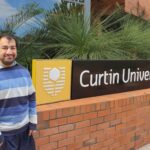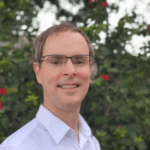Curtin University has launched doctorsforthefuture, a community campaign aimed at raising awareness of the increasing shortage of doctors in Western Australia and Curtin’s proposal for a medical school at its Bentley Campus.
The proposed medical school would increase the number of doctors available by offering the only five-year direct-entry undergraduate medicine degree available in Western Australia.
Curtin’s Vice-Chancellor Professor Jeanette Hacket said it is clear that the people of rural and regional WA need more doctors now, and in the future.
“Curtin’s proposed medical school would mean that prospective medical students could commence their path to a career as a doctor from day one, rather than needing to complete an undergraduate degree before starting their medical studies,” Professor Hacket said.
“This would result in more Western Australian-educated doctors in the workforce sooner.
“It would also mean prospective students looking for a direct-entry route into medical studies would have a local option and may be less likely to move away from Western Australia.”
Studies have shown that Western Australia is currently facing a shortfall of 100 rural doctors, and based on projections, by 2022 we could need almost 3,000 more doctors across both metropolitan and rural areas.
“We know from research that students who are educated and trained in rural areas are more likely to remain in or return to work in these regional locations,” Professor Hacket said.
To address doctor shortages in rural and regional WA, Curtin is proposing to establish a number of clinical schools in priority locations across the State.
In collaboration with industry, Curtin’s health sciences students are currently participating in team-based clinical training in Geraldton and Albany. Should the University receive approval to establish a medical school, Curtin’s medical students would join a similar program.
“We plan to produce doctors who will stay and practice medicine in priority locations, helping to ease doctor shortages in these regions,” Professor Hacket said.
The collaborative format of Curtin’s proposed medical degree would ensure the students would have a headstart on teamwork as they engaged with Australia’s first fully integrated interprofessional education curriculum.
“Curtin is leading the way in providing a team-based approach to teaching health professionals which will lead to improved patient safety and quality of care,” Professor Hacket said.
The proposed medical school’s curriculum is aligned with the key areas of need in the WA community and will have a primary care focus with an emphasis on chronic disease, aged care, mental health, Indigenous health, biomedical and clinical sciences, and population health.
Curtin’s Pro Vice-Chancellor, Faculty of Health Sciences Professor Jill Downie said clinical placements are also being negotiated with major healthcare providers in WA.
“We have plans for alternative clinical placements for the training of our medical students in the aged care arena where there are more than 15,000 residential healthcare beds,” Professor Downie said.
“Should the medical school be approved, Curtin will immediately begin the process of accreditation with the Australian Medical Council (AMC).”
If approval is gained by mid-2012, the first graduates of Curtin’s AMC-accredited degree would enter the workforce in 2019.
To register support for the campaign visit doctorsforthefuture.com.au




